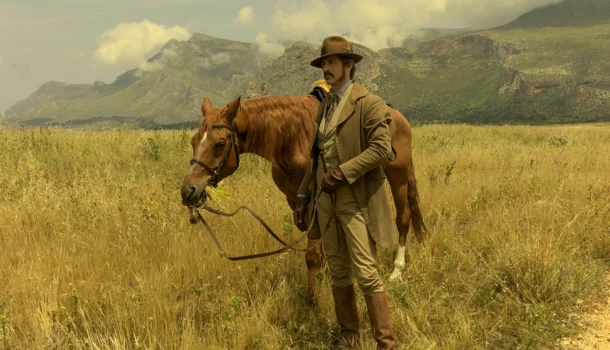There are times when the present is ashamed of its own repetition, yet refuses to step back. On the contrary, it seems to savor historical déjà vu as a form of reactionary comfort. In today’s Italy, the specter of the past doesn’t merely haunt the halls of power — it parades through them with pride. In 1860, as the country stumbled between fragmentation and promises of unification, Giuseppe Tomasi di Lampedusa captured, with unsettling precision, the empty gestures of supposed change. Over a century and a half later, “The Leopard” feels more urgent than ever — not out of nostalgia or chance, but because contemporary Italy — under Giorgia Meloni’s nationalist pillars — appears to restage the same farce: the illusion that renaming things is enough to preserve old privileges. “God, Homeland and Family” return as slogans — not to inspire, but to silence.
Richard Warlow’s transposition of the story into series format is more than an adaptation — it is a surgical reinterpretation of aristocratic decay and manufactured hope. It plays out as a historical drama in the guise of a warning.
Spread across six episodes, the novel’s conflicts find visual form in the landscapes of 19th-century Sicily, as the Risorgimento begins to redraw the peninsula’s political contours. In practice, this so-called “unification” was less a heroic breakthrough than a strategic maneuver to leave power structures intact. Warlow grasps this irony and intensifies it. The figure of Fabrizio Corbera, Prince of Salina, remains central — not as a hero, but as the embodiment of the paralyzing lucidity of an elite watching its own decline with melancholic pride, resisting less out of conviction than out of vanity. Decay, after all, is a comfortable place for those who never truly believed in change.
In Visconti’s version, Burt Lancaster endowed the prince with a stoic, almost sculptural dignity. Kim Rossi Stuart, inheriting the character, opts for a contained fragility, an existential fatigue that never erupts, but hums beneath the surface. His performance suggests that power, when it senses its own end, turns contemplative — and thus even more dangerous. There’s a stagnant yet tense air in the Corbera palace: the faded gold of the walls, the hollowed-out rituals, the weight of pomp transformed into silent mourning. The aesthetics, as in Visconti’s films, are not decorative but accusatory.
The threat does not come from the rebellious masses, but from the romantic ideals heralding the arrival of Garibaldi — the warrior of two continents, the icon of revolution who inspires but does not regenerate. The Corbera family, clinging to its elegant fear and faith in continuity, chooses exile over adaptation. Don Fabrizio, with the intuition of someone who has already lost, realizes that the new order will merely shift the players in the same old game. His attention then turns — from politics to the union between his nephew Tancredi and Angelica, daughter of an ascendant bourgeois. That marriage is less a romantic gesture and more a symbolic survival tactic — and in the background, Concetta, doomed to bitterness, embodies the story’s most tragic layer: emotions sacrificed for the sake of convenience.
With aesthetic rigor and command of historical ambiguity, Warlow steers the series as if translating a timeless critique. Nicolai Brüel’s cinematography doesn’t seek static beauty, but visual proof of disintegration. Everything seems on the verge of collapse — not with violence, but with the quiet slowness of empires rotting from within. The strength of the adaptation lies precisely in avoiding any illusion of catharsis: what is offered to the viewer is not redemption, but recognition. The portrayal of an elite that perpetuates itself by stepping back from the spotlight is both brutal and familiar.
Lampedusa, in the end, never wrote about nostalgia. His leopard is not a symbol of bygone grandeur, but of comfortable cunning. By breathing new life into that figure, Warlow doesn’t honor the classic — he stretches it, deepens it, modernizes it. The series understands that the true heirs of decadent aristocracy no longer wear crowns, but titles, slogans, and marketing strategies. And when the dust of history settles, it is almost always a hyena who sits on the throne left vacant by the last leopard.
Series: The Leopard
Creator: Richard Warlow
Year: 2025
Genres: Drama/Epic
Rating: 10

